Author: Mr.Yu
Today I plan to cross over and become a game editor.
Because I found that Chinese car users are becoming more and more like game players.
What I’m about to discuss is not playing games in cars or using the game industry to empower traditional suppliers for automakers, but rather many phenomena in the game industry in recent years that are being reproduced one by one in the automotive field. The problems that were once thought to be faced only by game players are now being experienced by car users as well, such as pay-to-win, piracy, PUA users, and time-limited functionality.
The more I look at it, the more I realize that many people do not have the destiny of an internet company, but have already been plagued by the disease of the internet.
Who said that the joys and sorrows of human beings are not the same?
Pay-to-win Schemes are Deeply Ingrained, I Want to Return to the Countryside
At first glance, the “Stone Valley” concept released by IM L7 might seem like a very typical internet operation method.
Upon closer inspection, it is actually a “real-world” game that integrates blockchain gameplay: users drive IM cars and convert driving into mining for “Stones,” which are the core valuable assets of the Stone Valley universe. The system automatically collects dropped Stones, which can be used to exchange for various benefits. For example, early users can use up to 6,800 Stones + 10,000 yuan cash to exchange for the IM laser radar integration smart driving hardware system after the exchange is opened.
In short, the data generated by users while driving is collected by IM for product research and development, with a certain amount of Stones given back to the user based on the data’s value.
According to publicly available information, there will be more software and hardware upgrades, peripherals, services, activity benefits, and even NFT digital collections added to the Stone Valley Luxury Lunch.
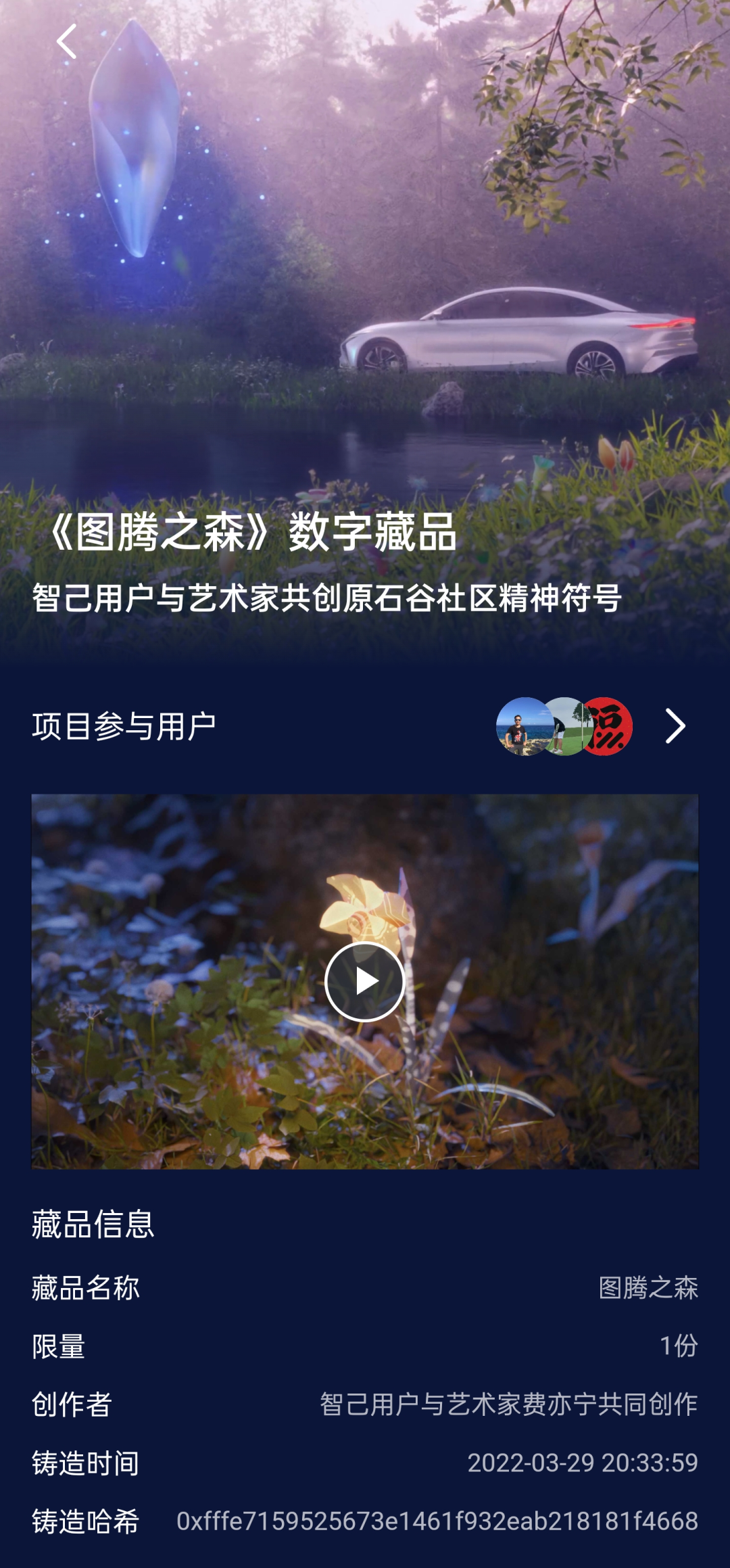
Data is the cornerstone of algorithm iteration, and I believe no one would argue against that. Compared to collecting and uploading data silently, at least IM gave everyone a reason to share data.
Note that what we are talking about here is data, not privacy.
IM named this value community gaming method “IM GO!”– reminiscent of the global phenomenon AR game “Pokemon GO” that also combines virtual and reality. The only difference is that for the former, you need a car, while for the latter, you just need a phone.
Where there are games, there is cheating. As the developers and operators of this “game,” IM has added a national encryption algorithm to the Stone chain to ensure data security, information privacy, and most importantly, tamper-proof and unforgeable transactions, to “ensure that every user can gain data benefits fairly and justly.” It is similar to the anti-cheating system in online multiplayer games.It all looks great, but as the core of this game, the acquisition of the ore doesn’t seem so easy.
In the Zhi Ji community, many users are complaining about the drop rate of the ore. Except for the manipulation from rival companies, I haven’t seen the official operation personnel give targeted answers to users’ doubts.
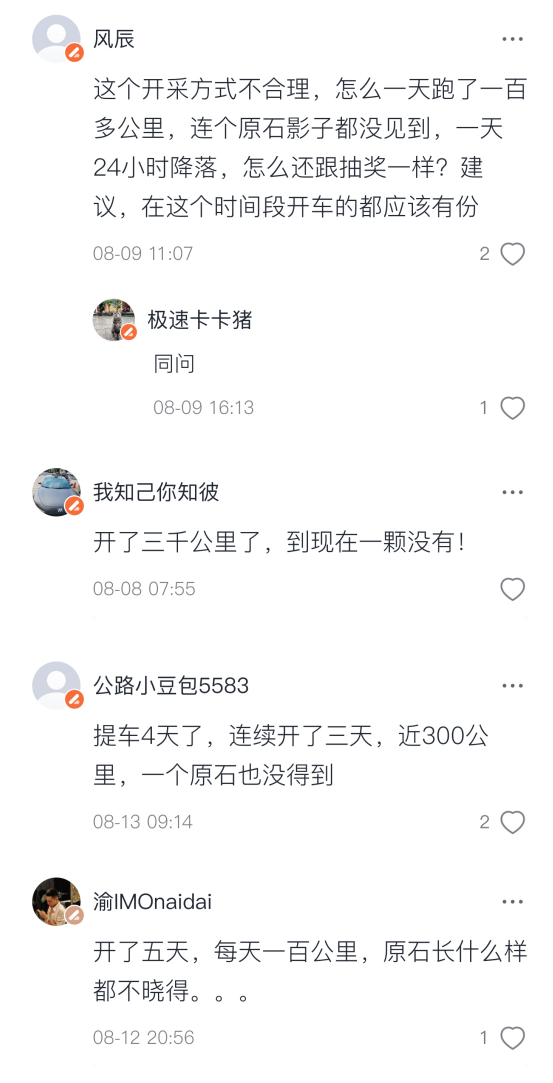
According to the official announcement, Zhi Ji’s first batch of ores were not enough for the first batch of users given that the official L7 began delivery on June 18 and broke the delivery speed of thousands of cars by July 31. When the subsequent delivery volume increases, the number of users will become larger, will it be even harder to obtain ores?
Assuming that the total amount and drop rate remain unchanged, the more users participate in “milestone mining,” the harder it may become to obtain and accumulate ores. This is far from what the official communicated as “easy to obtain.”
As the number of users who share data continuously increases, the difficulty of accumulating rights through ore acquisition will become higher. However, the collection of driving data will not stop. It means that only those who buy a car earlier and join earlier can gain advantages. The promotion stated by Zhi Ji, “Every mile is valuable,” suddenly became unclear.
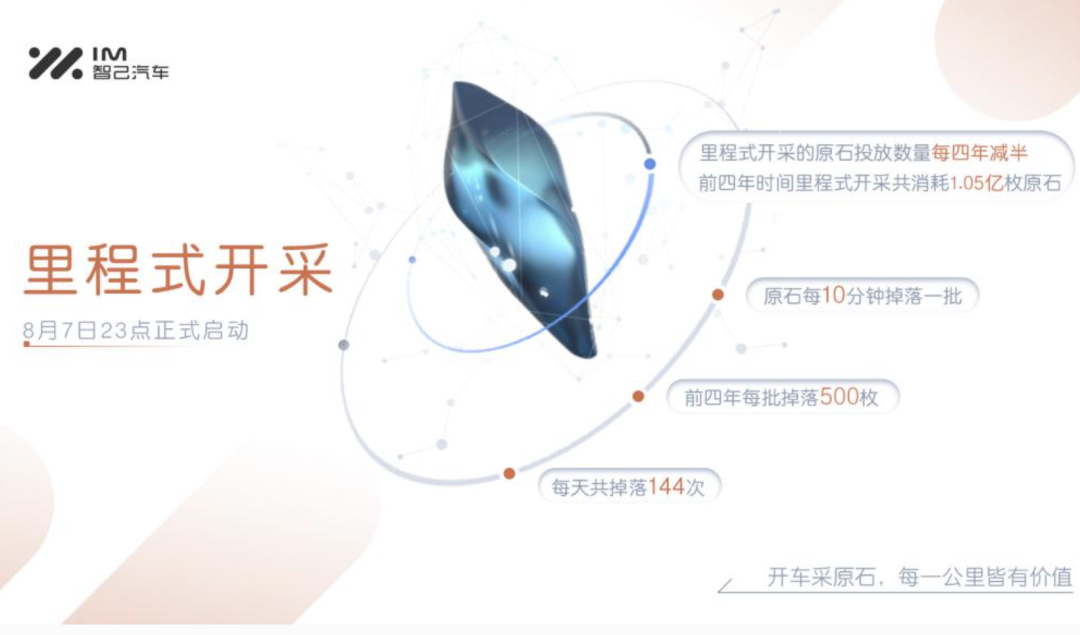
Previously, Liu Tao, the co-CEO of Zhi Ji Automotive, also stated: “For the ore mining play, we don’t want to become a real mining machine, but hope that the ore mechanism can be an attraction, and users can truly focus on the product itself.”
The underlying meaning is that don’t take this game too seriously since what we are selling is still a car.
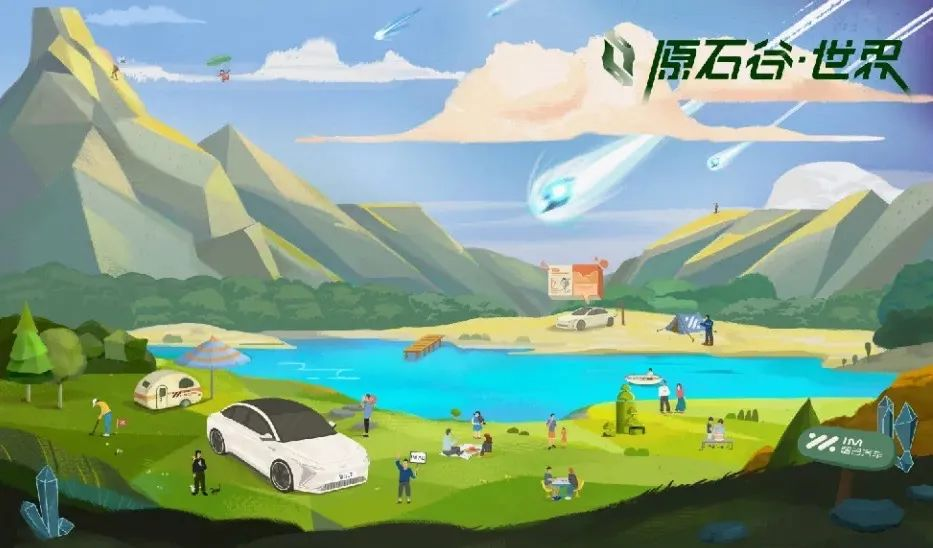
Gaming companies only want you to continue spending money to maximize the player’s emotional value when the “shipment ” comes. Zhi Ji’s gameplay is equivalent to allowing users to be “all-test cars.”
Both NetEase and Tencent dare not play like this. Growing up in an era where the national cultural and entertainment forms were relatively scarce, there would always be a few mahjong machines or gambling machines in the local arcade with some scale. If it weren’t for being young in those days and seeing the uncles with half-smoked cigarettes sitting in front of the machine with a frown and ashtray full of cigarette butts piled up high, I would really think that they were relying on the revenue from the mahjong machine to make a living.
Until I grew up, I realized that winning against the machine with the machine was abnormal. This is in line with the old saying: The longer the gambling lasts, the fewer the winners.## Hardware is easy to buy, software is the real trick
First and foremost, let’s clarify that paying for software and unlocking software functionality are two different things.
Now, let’s talk about something unrelated. I consider myself to be the most open-minded person I know when it comes to paying for content. I am willing to buy genuine copies of games and movies, pay regularly to follow comic updates, and even purchase pay-per-view episodes of podcasts I have been following for years, even if I am not particularly interested in the current content.
Sometimes, I even think that if Chinese people had realized the importance of paying for content earlier, there might not be so many inspiring stories to tell at the Utopia of Chinese rock or the Tree Village in Beijing’s Haidian district.
But back to the point.
In the decades before game software was born, whether it was a cartridge or a disc, it was always a buy-out system. And the experience that game works could bring to players would be complete. Some powerful developers and publishers also released paid or free expansion packs before releasing sequels, providing new content and experiences on the basis of the original framework, pushing business value and reputation to a higher level.
For example, “Frozen Throne” is the official expansion pack of “Warcraft III”, a landmark game in the history of gaming.
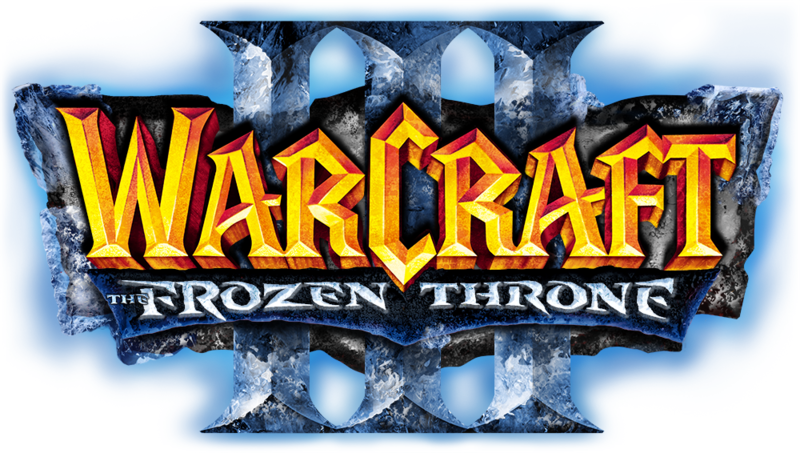
After the advent of digital platforms, everything changed.
Once the global download speed of users reached a certain level, many players in money-making industries began to showcase their skills:
Buying a game is just to cut open a mouth on your wallet. Before release, there are limited pre-order benefits, and after release, there are a variety of downloadable content (DLC).
The key is that many DLCs are not designed to increase fun or extend the life of works, but rather players have to spend more money to get a relatively complete experience. And not all of these DLCs are well-produced or aesthetically pleasing. There are many subpar and rushed products, including sequels from big brands and well-known IPs.
Extra content that should have been in games can now be planned as DLCs that require additional payment during development or sold as luxury add-ons along with the main game.
This kind of practice was unimaginable in the first few decades when games were considered as software products.
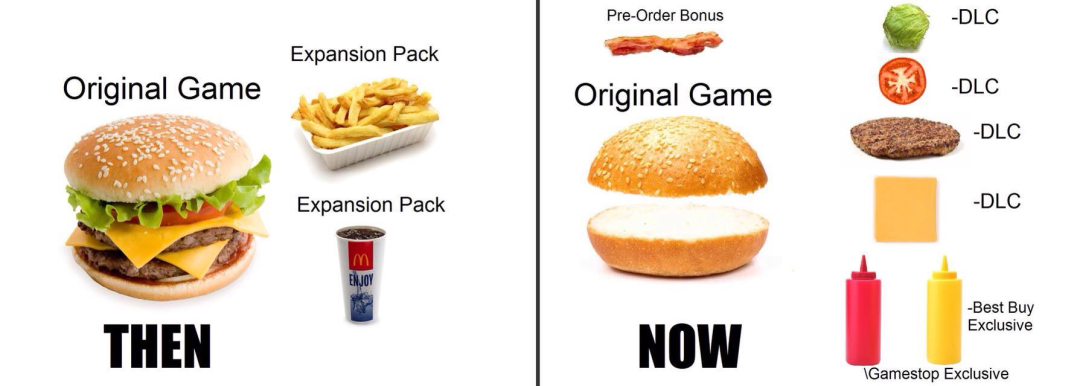 People have been accustomed to the logic of paying for goods and delivery for many years. Most people assume that if a certain hardware is selected when buying a car, the corresponding function will be enabled.
People have been accustomed to the logic of paying for goods and delivery for many years. Most people assume that if a certain hardware is selected when buying a car, the corresponding function will be enabled.
Even so, I still don’t understand the strategy of many automotive companies, such as the subscription model for seat ventilation, heating, and steering wheel heating in the smart elf #1 (hereinafter referred to as smart#1).
For example, the high-end models come with front seat heating as standard, and subscribers can also get steering wheel heating and front seat ventilation. The mid-range models do not have front seat ventilation and require subscription for front seat and steering wheel heating. The low-end models do not even have the hardware for the three functions pre-installed.
Despite the differences in hardware configurations, such as the high-end version having 13 speakers while the mid-to-low range models only have 5, there is still a difference of nearly 50,000 yuan.
For high-end users, is the hardware price for seat ventilation already included in the additional 30,000 yuan they paid, and why do they still need to subscriptions to enable the functionality that is already pre-installed in their cars?
It turns out that the premium paid is for conditional right to use some hardware, not ownership. Thus, the familiar trading model of exchanging goods (currency – goods) is turned into a method of secondary earning for car companies. The blurred pricing logic has understandably raised concerns from consumers.
This ambiguous charging attitude has caused more than one potential car owner to reconsider.
So, many people, including myself, would like to know, from whom did you learn such an advanced business model?
Conclusion
Today, I’m going to end this article with a cross-domain story.
Electronic Arts, a game giant that holds global-level IPs such as Need for Speed, FIFA, also owns copyrights for military-themed games such as Battlefield and Medal of Honor. However, both experienced devastating reputational damages, with the latter even had its franchise development canceled after market performance fell below expectations in 2014.
Let’s take a closer look at how this industry giant lost its users.Same as DICE, a subsidiary of EA, the beta test of Battlefield: Bad Company 2 in 2010 directly led to its 5 million sales. However, the beta test of Medal of Honor in the same year, with its enormous number of malignant bugs, directly caused the largest industry-wide unsubscribe movement.
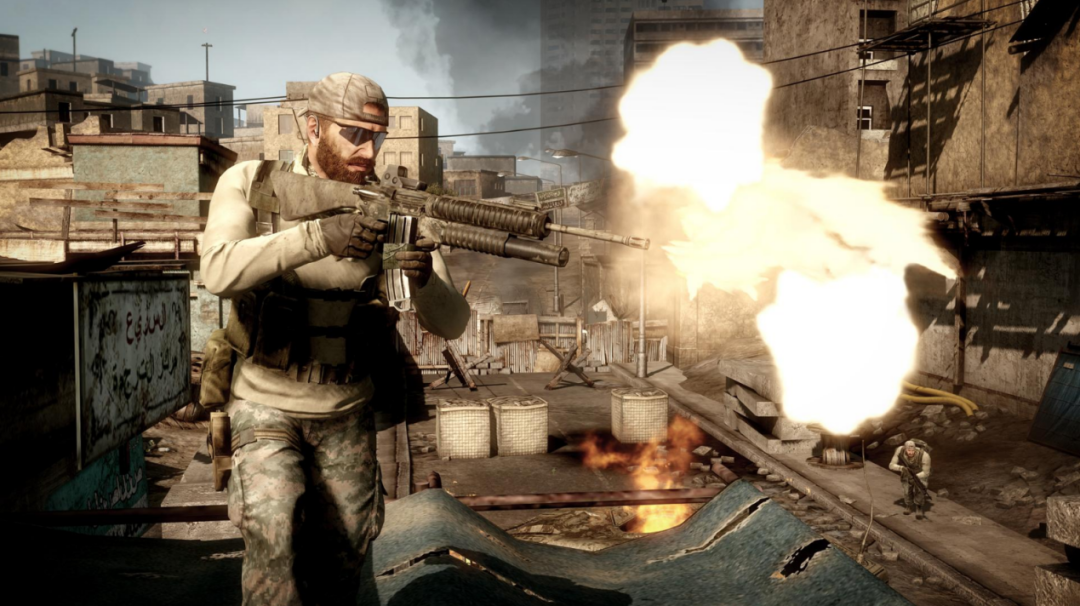
Unfortunately, I was also one of the many beta testers at that time.
I remember on a hot summer afternoon, I finally managed to score a lot of points by continuously shooting down multiple players on the intense virtual battlefield. So I quickly ran to a concealed corner amidst intense gunfire, ready to summon a fiery missile from the sky to physically blow the tops off my opponents.
Controlling the missile’s landing with my tablet, I saw a group of enemies packed tightly in one place. And at the moment the missile camera hit the ground, the beating speed of my heart was about to reach its limit. Unexpectedly, the interface suddenly returned to the desktop, as the program crashed!
You might think I was too immersed. Perhaps not everyone can understand, but that feeling of being fully ignited with adrenaline, followed by an icy cold shower, is beyond imagination.
This was another high emotional cost. Even as a tester, I felt like I was being fooled. So, I gave up and uninstalled the beta program of Medal of Honor.
Later, I heard that EA even played a more blatant trick – buying the limited edition of Medal of Honor in order to participate in the beta test of Battlefield 3. But that’s another story of a globally renowned magical bug.
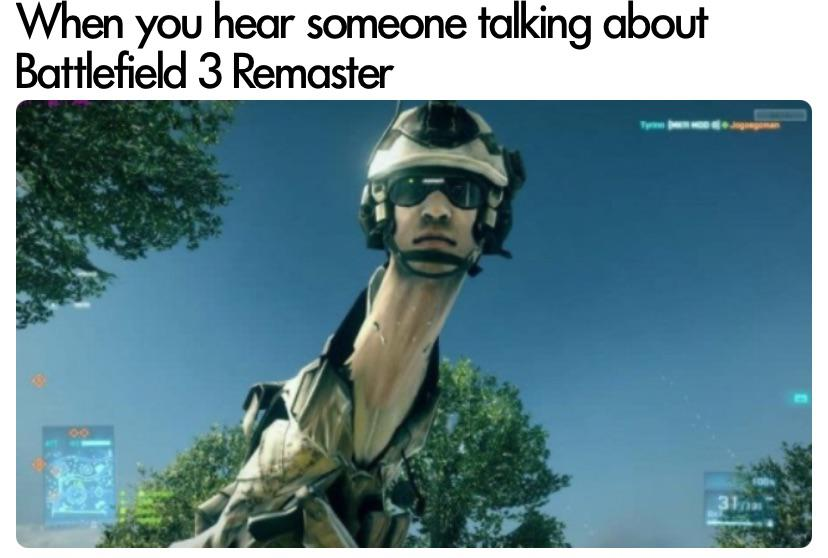
Since then, I no longer think that spending my time being a testing guinea pig is worth bragging about. As an average user, I just want a relatively stable product experience.
Perhaps not all companies understand how important effective management of user expectations is. At the very least, please finish your product before selling it to us.
A two- or three-hundred yuan game is one thing, but durable consumer goods like cars, which often cost tens or even hundreds of thousands of yuan, should follow this rule even more closely.That being said, in recent years, digital games sold on some mainstream platforms have been able to be fully refunded under certain conditions in order to protect players’ interests.
Can you drive?
This article is a translation by ChatGPT of a Chinese report from 42HOW. If you have any questions about it, please email bd@42how.com.
